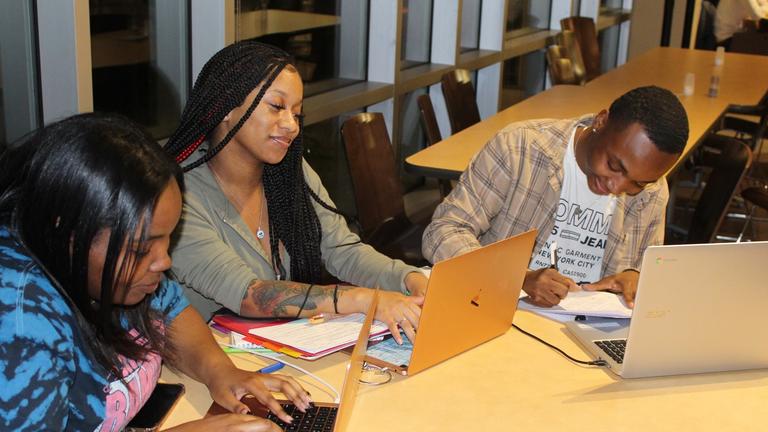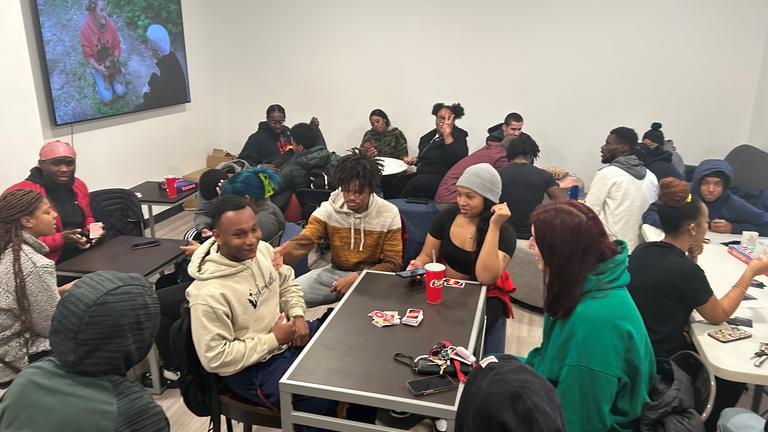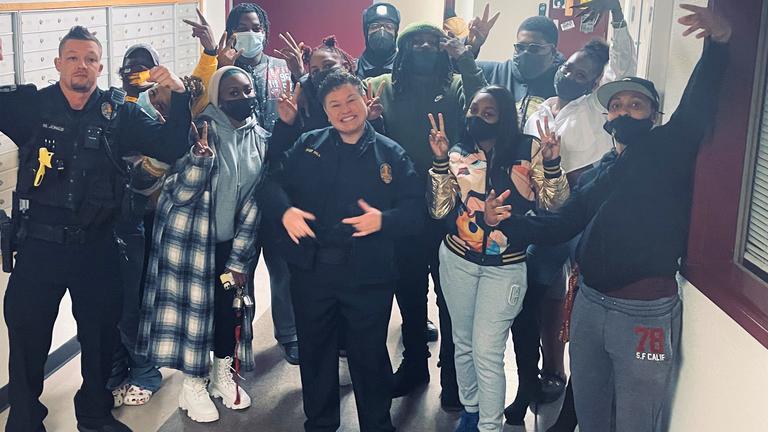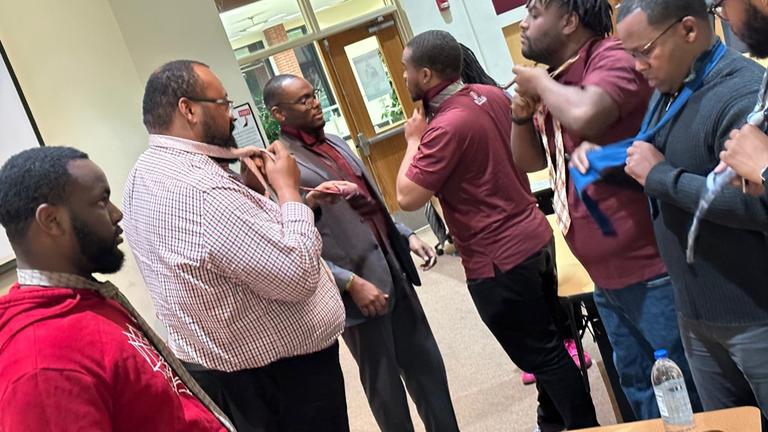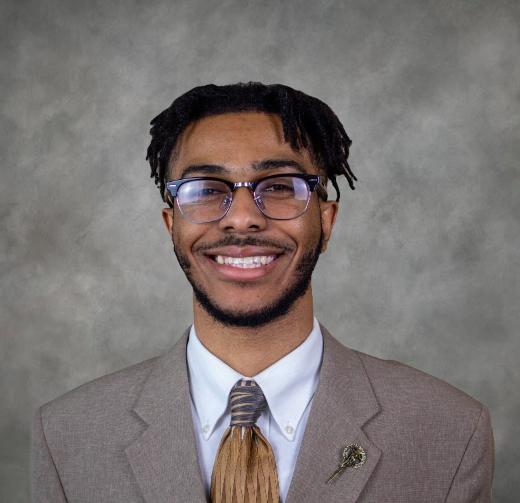
Office of Residence Life and Housing offers students range of opportunities
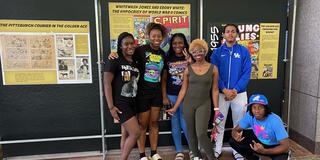
Above: Students visit the National Afro-American Museum & Cultural Center, an Ohio History Connection museum on the campus of Central State University. A 2023 exhibit offered glimpses into the history of black comic book characters. The museum also features an incredibly inspiring exhibit called Queens of the Heartland, including many Civil Rights leaders with ties to Wilberforce and the Dayton, Ohio, region.
Graduating senior Julian Fuqua, majoring in manufacturing engineering, saw himself as somewhat shy and introverted when he first came to Central State University from nearby Trotwood, Ohio.

When he was tapped by a representative of the school’s Department of Residence Life and Housing to apply for the Residential Advisor (RA) program, Fuqua discovered a new path toward opening a more social, engaged, and interactive side of himself.
“It’s been a lot of important personal development, working as an RA,” Fuqua said. “I feel blessed that I’ve been given this opportunity to help people in the way I’ve always wanted to but wasn’t exactly sure how until now.”
RA duties mainly pertain to sitting at the front desk of residential buildings, ensuring students entering and leaving can see someone is there who can assist them as needed. This includes guidance about classes, schedules, room organization, and — often — personal and mental health concerns.
A typical work week lasts for 20 hours, with time served for being on call when they are not scheduled for their two-hour desk duty sessions. Session blocks run throughout the day from 8 a.m. to 10 p.m. on weekdays, except Fridays when duties last until 2 a.m. Saturday evening hours are also extended to 2 a.m.
The 2023-24 academic year marks Fuqua’s second tenure as an RA. He admits his first year in the program was somewhat challenging, being that he was an RA for students in his same grade level, which could lead to awkward, confusing, and even frustrating relationship dynamics.
“I’m waking up and going to class with these people, and then at the end of the evening, I’m having to tell them to be quiet, which was weird,” Fuqua said. “They were like, ‘Dude, you were just trying to work with me on homework. I’m not gonna listen to you!’”
By reminding his same-age residents that he was less trying to be bossy and more trying to help them live the most comfortable and best life on campus they could, Fuqua overcame such obstacles and grew to love his role.
Fuqua’s success led him to once again become an RA this year, this time at Foundation Hall II — colloquially known on campus as “the Twos” — and overseeing freshman residents exclusively.
“In the Twos, I’m more of an older brother to my residents, and that works better for me,” Fuqua said. “One of my passions during my time at school here has been mentorship and giving back to the community. If I can help just one person, they can help another person, and that carries a domino effect.”
“This is actually my first year being an RA, and already I’m thoroughly enjoying it,” said Jordan Connally, a junior majoring in political science with a minor in African American studies. Originally from Detroit, Michigan, Connally’s hope is, upon graduation, to attend law school and eventually go into politics.
“I know it’s only been a few weeks since I started,” Connally, who is also an RA in Foundation Hall II, continued. “But I can tell I’m going to enjoy it for the rest of the year.”
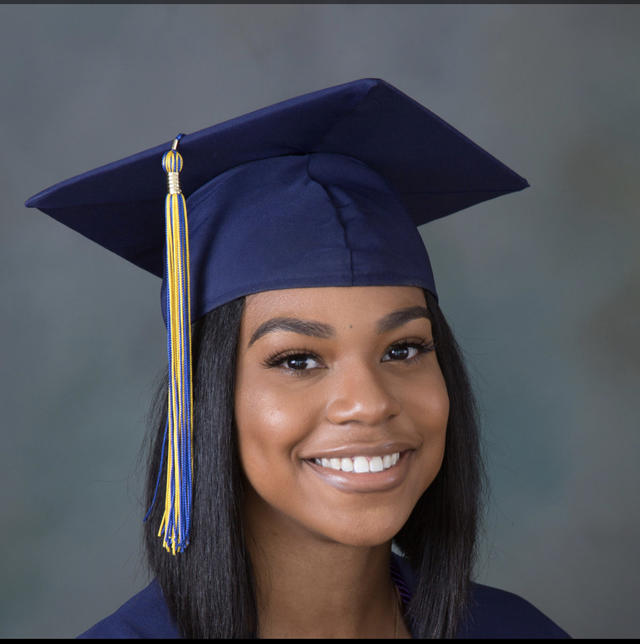
Connally lived in Foundation Hall II when she was a freshman, and, as such, being an RA there now gives her a particularly robust sense of being something of a mentor to the younger students that she oversees.
“I remember my own RAs there being so cool,” Connally said. “In a lot of ways, they were my first friends at Central State. I had a really hard time transitioning from home life in Detroit to campus life, and they were a big help for that. If I can do that for someone else now, that’s definitely meaningful for me.”
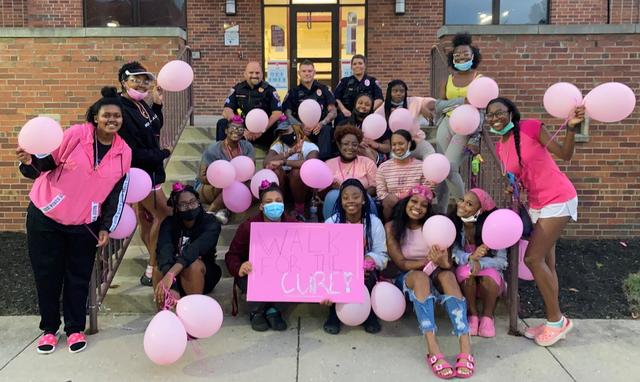
Although Connally sees herself as friends with her residents, she noted too that there’s “definitely a respect there; there’s a ‘big sister-little sister’ relationship. And it warms my heart that, so early in the year, they are already coming to me to talk with me about all different kinds of things, even very personal things, as a person that they can trust, someone they can look up to, especially during hard times.”
Connally elaborated that, despite the fact “it’s kind of weird because we just started school and this is happening so quickly,” she is elated that she can be more than an RA but also a confidante to the women in her charge.
“I’ve always been genuinely interested in other people and how they’re doing,” Connally added. “That’s very important when it comes to why I ended up an RA.”
As far as balancing the job with her personal time, Connally explained that she typically finds ways, when possible, to overlap her RA duties with, say, her schoolwork. This includes getting homework done during her desk duty hours.
“When there’s downtime during my desk duty hours, I can mess around on my phone, or I can do my homework, and I choose doing my homework much of the time,” Connally said.
“We’re able to balance it all very well, especially with support from the administration who work with us to carve out time as needed for extra-curricular activities, band, sports, or whatever it might be.”
Fuqua, meanwhile, worked out a flexible schedule with his hall monitor — the professional administrative staff all RAs are sourced with to lean on for management support when needed — to leave for a few days to go see his girlfriend in Chicago during a long weekend. His girlfriend, a Central State graduate known as a Centralian, had also been an RA during her time as a Marauder.
“My social life has really improved due to my work as an RA,” Fuqua said. “And I think it’s even made my relationship with my girlfriend that much better. It gives us more to talk about, and she helps me out with a lot of advice.”
While Fuqua said that “ever since I was junior in high school, it was ‘always Central State’” when it came to where he’d go to college — having multiple family members who had attended — Connally revealed that her own decision to join the University was far less predetermined.
Before deciding on Central State for her studies, she was committed to taking a gap year and attending a different school. The powerful sense of familial community that she experienced while visiting the Central State campus convinced her to change plans.
The powerful sense of one-on-one and face-to-face intimacy that is unique to Central State’s HBCU community drove Connally to not only eventually make the choice to become a student at the Institution but also, eventually, become an RA.
Connally said that the tight bond she has developed with her residents in such a swift manner extends, too, to her fellow RAs. Already, she has become extremely close with Fuqua and other members of the RA cadre, something she feels is crucial so that she can learn — as a first-year member — how to develop and improve her role to the best of her ability.
“We all end up hanging out with each other during our desk duties, watching over our residents when they enter the building,” Connally said. “Even when it’s not our duty time, we just end up being around each other anyway, because we’re all so tight.”
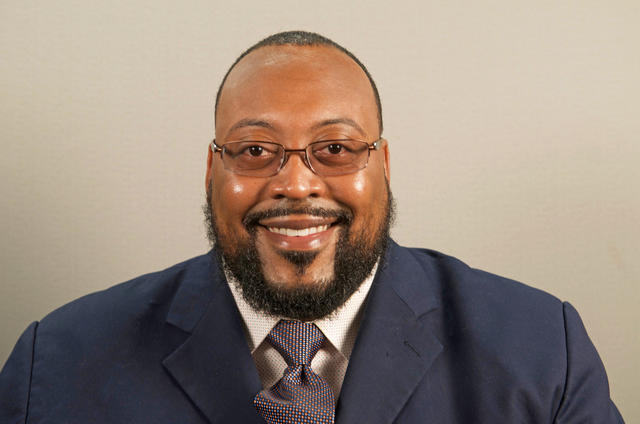
“One thing about Residence Life: there’s never two days that are alike,” said Justyn Fry, a Detroit-born Centralian with degrees in English and business who serves as Central State’s director of Residence Life and Housing. “You never know what to expect; but we’re always able to stay on our toes and respond to whatever the situation calls. It’s about figuring out what ways we can be proactive, so we’re not always just responding.”
Now in his third year as director, Fry manages all the University’s campus housing, from traditional residence halls and suite-style residential facilities to apartment housing for nontraditional students and faculty.
Fry and his department typically open applications for students interested in becoming RAs during the second week of November until Feb. 14. Campus-wide announcements are made each year about the same. Fry and his staff will also engage in direct outreach, finding students they believe might make for ideal RAs and suggesting they apply, as in the case of Fuqua.
“After our interview and application process, we normally end up with about 75 students in what we call the ‘RA draft,’” Fry said. “And from there, my hall coordinators and I determine both which students would make for the best RAs according to their attitude and level of care, as well as further deciding which halls and floors would be best fits for which RAs.”
RAs are announced each year in April. Those students selected are put through a rigorous training process that includes all manner of exercises and education into such vital subjects as confrontation coping mechanisms, leadership skills, management and organizational skills, mental and physical health awareness, and school policies.
The department furthermore supports students in overseeing their students and working out their desk duties and in producing and hosting regular campus events, activities, or workshop programming for the betterment of student life.
“We go beyond what is required of us in Residence Life,” Fry said. “There is not a time when our professional staff or RAs aren’t there to check up on individual students, whether they’re having a bad day, not feeling well, dealing with some hardships back home, or just needing help with keeping their room clean. We’re all here to offer that level of support. Your Res Life staff is pretty much here to aid and guide during all of these times.”
“Central State’s Residence Life department definitely gives us a lot of resources,” Fuqua said. “They pay for our rooms, some of our board, and we get a semi-monthly stipend, too. I’m grateful that they do that.”
“Central State is a great school,” Fuqua said. “And we have this little line we like to say: ‘If you can make it here, you can make it anywhere.’
“Becoming an RA is one way I can give back to that community that has already done so much to make me the person I am today. That’s the main reason I became an RA: to build those bonds I hope will last a lifetime.”
